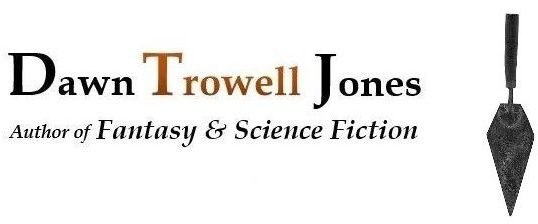 My husband and I had a couple of friends over for tabbouleh and grilled steaks this weekend, and we all started talking about our college years. My friend S. mentioned how important grades had been in the graduate program in GIS he’d attended, how much he’d dreaded the possibility of a C, or even a B. Well, I don’t blame him. Sounds perfectly reasonable to me. But I had to smile at that, because it reminded me of this:
My husband and I had a couple of friends over for tabbouleh and grilled steaks this weekend, and we all started talking about our college years. My friend S. mentioned how important grades had been in the graduate program in GIS he’d attended, how much he’d dreaded the possibility of a C, or even a B. Well, I don’t blame him. Sounds perfectly reasonable to me. But I had to smile at that, because it reminded me of this:
When I was in college, my professor of Post WWII British Literature (1991?) suggested the class read James Gleick’s popular book Chaos: Making a New Science. Only if we wanted to, he said, and only if we didn’t neglect our assigned reading, papers, and journaling. He wanted us to consider how to apply chaos theory to works of fiction.
This professor was a little pompous — and I was bored with his class – so, of course, I did go read Gleick’s book, but I didn’t do the professor’s assignments. And then, oblivious to bad form, as always, I visited the professor’s office on campus and told him what I thought of the book, how I imagined chaos theory expresses itself in the tangential story lines of a novel, story lines both spelled out and implied, as they feed into and become part of the novel’s main narrative. But since I hadn’t yet demonstrated much interest in doing the other assignments he’d given us, the real work, he wasn’t a big fan of mine. During our next class, he shared my answer, but didn’t mention me by name or even look at me.
 He may not have liked my behavior, but I certainly disliked his. And then, later that semester, he strolled into the Little Caesar’s where I worked — presumably to buy pizza – and as I handed him his pizzas, he asked if I’d turned in my most recent journal pages. All smiles, I said “No” — without even batting an eyelash — to which my professor crooked a grin and asked, “Aren’t you scared?” In a lower voice, he added, “You should be.”
He may not have liked my behavior, but I certainly disliked his. And then, later that semester, he strolled into the Little Caesar’s where I worked — presumably to buy pizza – and as I handed him his pizzas, he asked if I’d turned in my most recent journal pages. All smiles, I said “No” — without even batting an eyelash — to which my professor crooked a grin and asked, “Aren’t you scared?” In a lower voice, he added, “You should be.”
Well, as you can imagine, I didn’t care for that, either!
To use a little literary lingo, this became an “inciting incident.” In the meantime, I’d mail-ordered a wooden recorder (a flute) to see if I could re-teach myself the basics, and it’d arrived by that point, so for the next class, no book open, I sat reading the manual to the recorder while my professor lectured on Iris Murdoch, repeating “Thalatta! Thalatta!” over and over, in an affected New England drawl.
And no surprise here, this class didn’t end well for me grade-wise – no A, no B, no C, no D, and not even an F, which amused my academic advisor to no end. The professor had given me an “Incomplete”. If you don’t know (but I’m sure he did), unlike an F, an “Incomplete” becomes an enduring topic of discussion — it haunted me everywhere I went — until I completed it, or it timed out and automatically converted into an F.
It turned into an F. But I had to wait a year. In his official notes for the “Incomplete”, my professor had written: “Completion of this course is dependent upon the writing of two papers, a journal, and submission.” The late USC-Columbia Honors College Dean Bill Mould, my advisor at the time, read it out loud to me, rather somberly, and then waited for my response. I said nothing. Heavy silence. He asked if I planned to complete the “Incomplete”. I said, “No, I will not.”
 Poor, poor me. I remember scowling a bit, just a twinge as I contemplated what the professor had done. Dean Mould shook his head at the paper and a warm smile spread across his face. This was the Honors College, mind you — I was supposed to be a serious student — it was just… I didn’t much like being pushed around. Still don’t. I don’t kowtow well. Which is naughty, I admit. Bad form. And one has to pay for one’s liberties. But Dean Mould couldn’t have been more gracious, such a good-natured person, a kind man, and by the end of our session, he was laughing with me about how I’d clearly got under my professor’s skin — but yes, definitely also laughing at me, alas, because of how very young I was and reckless.
Poor, poor me. I remember scowling a bit, just a twinge as I contemplated what the professor had done. Dean Mould shook his head at the paper and a warm smile spread across his face. This was the Honors College, mind you — I was supposed to be a serious student — it was just… I didn’t much like being pushed around. Still don’t. I don’t kowtow well. Which is naughty, I admit. Bad form. And one has to pay for one’s liberties. But Dean Mould couldn’t have been more gracious, such a good-natured person, a kind man, and by the end of our session, he was laughing with me about how I’d clearly got under my professor’s skin — but yes, definitely also laughing at me, alas, because of how very young I was and reckless.
I mean, I got an F.
But never mind all that. That was a long time ago. And it’s nice to fail at something every once in a while and get the sting out. What I desperately want to share with you this day is how much I’ve enjoyed daydreaming about the application of chaos theory to stories over the years since. No regrets at all! I’m so glad that egotistical professor quasi-assigned that book!
Life’s beautiful, ain’t it?
(My sincerest apologies to the late Iris Murdoch, by the way. And to my dear late father, who would have squirmed painfully if he’d known I’d done all that.)
A great article that gives a little insight into what chaos theory is, if you don’t already know: “These Hidden Women Helped Invent Chaos Theory” (http://www.wired.com/story/these-hidden-women-helped-invent-chaos-theory/). I loved reading about Fetter and Hamilton.
